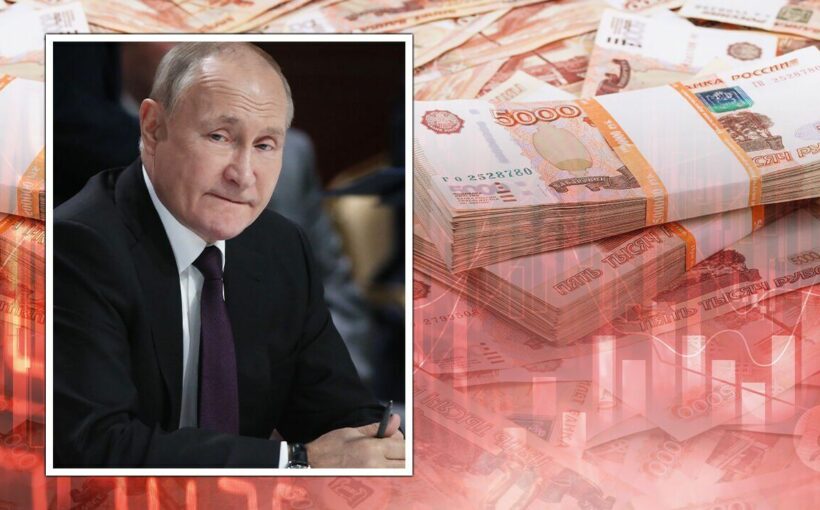Russia is 'desperate' and trying anything to hang on says Hamish
We use your sign-up to provide content in ways you’ve consented to and to improve our understanding of you. This may include adverts from us and 3rd parties based on our understanding. You can unsubscribe at any time. More info
Russian President Vladimir Putin announced a partial mobilisation last month in an attempt to bolster his beleaguered military. Many military experts believe this will do little to thwart Ukraine’s counteroffensive, and it also appears that the Russian economy could take a blow. An economist from Russia, Vladislav Inozemtsev, believes that Putin’s mobilisation will contribute to Moscow’s financial downfall in the future. Writing for The Insider, he said that the “financial effects of mobilisation—in the medium-term—will be significantly greater than the consequences of…the war in Ukraine.”
Mr Inozemtsev added: “The Russian economy is going to die by winter, I wrote in early March. Now I think I was right. The mobilisation announced on September 21 was a milestone that really divided Russian history into ‘before’ and ‘after’—an event that began the final countdown of Putin’s era.
“And all this doesn’t take into account…the inevitable new wave of [Western] sanctions that will be announced in the near future. We are talking about a much more radical-than-expected displacement of Russia from energy markets and a new wave of restrictions on the supply of critical [imports] for the country.”
The expert also explained how poorer regions in Russia will be especially badly impacted by mobilisation because “thousands of families will be left without income, and local medium and small businesses will simply die out.”


The men that “disappear” from the labour market will hurt these poorer regions while people in wealthier cities such as Moscow will want to leave the country, he added.
He concluded: “This will be the strongest blow to the economy. Several million people will prefer to quit their jobs so as not to [serve] in the army. Meanwhile in large cities… the loss of even a few employees can cause disproportionate damage to the economy. Russia is the economy of large cities and companies.”
When Putin announced the partial mobilisation, hundreds of thousands of people left the country. Flights to countries such as Turkey, Finland and Georgia were sold out and neighbouring countries also saw a surge of people entering from Russia by land.

Last week, the Central Bank of Russia also warned that the mobilisation and subsequent exodus from Russia could harm the Russian economy. In its report, the bank said that the lack of people in the labour market will “hold back overall economic activity in the coming months.”
Meanwhile, analysts at Morning Consult, a global decision intelligence company, have said that “September’s events will not necessarily push Russia into an immediate recession, but challenges are mounting”.
Western allies also appear confident Russia’s economy will falter under the pressure of sanctions. Janet Yellen, the US Treasury Secretary, claimed earlier this month that the war in Ukraine has already weakened Moscow’s economy.
DON’T MISS
Germany warns allies not to ‘dismiss as bluff’ Russia nuclear threat [INSIGHT]
Russians force evacuation as Ukrainian troops on verge of taking city [ANALYSIS]
Democrats urge Biden to ‘explore all possible avenues’ with Putin [INSIGHT]


She said: “The Russian economy is projected to contract this year and the next. “Lost investment, including hundreds of private sector companies that have left the country and are unlikely to return, and constraints on Russia’s real economy will create a drag on Russia’s growth prospects for years to come.”
Ms Yellen added that sanctions have forced Russia to go to weapons “suppliers of last resort like Iran and North Korea for basic military gear”.
She continued: “At the same time, we have provided record amounts of both military and economic assistance to Ukraine. We are seeing on the battlefield the military edge this growing disparity is creating.”
Source: Read Full Article
